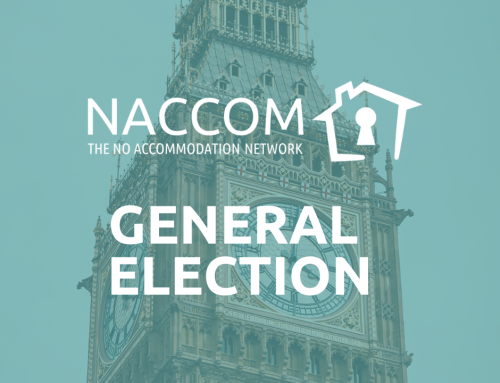The Joseph Roundtree Foundation (JRF) has released its third ‘Destitution in the UK’ report, which reveals an alarming rise in levels of destitution experienced by people living in the UK.
The 2020 report, based on research conducted in 2019, highlights that even before the COVID-19 outbreak destitution was rapidly growing in scale and intensity. Since 2017 many more households, including families with children, have been pushed to the brink.
JRF defines destitution as the inability to afford two or more of shelter, food, heating, lighting, weather-appropriate clothing, or basic toiletries over the past month, or a weekly income after housing costs of or below £70 for a single adult or £145 for a couple with two children.
Migrants, many ineligible for welfare support, were disproportionately likely to be destitute. One-third (32%) of all households experiencing destitution reported having no immediate source of income in the last month; this proportion rose to almost half (46%) among destitute migrant households.
“That all those present on UK soil during a national (global) health emergency should have access to the basic essentials for survival is the minimum that a rich and human society should undertake to ensure,” the study concluded.
Key findings include:
• Across the UK, our best estimate is that the number of households experiencing destitution at any point during the year has increased by 35% between 2017 and 2019 (with a 23% increase in households experiencing destitution in the survey week if we look at services in both surveys).
• Households experiencing destitution are also generally larger than in 2017 with more containing children, meaning the total number of people experiencing destitution at any point during the year rose by 54% and the number of children experiencing destitution rose by 52%.
• More than a million UK households experienced destitution at some point in 2019. These households contained 2.4 million people, including 550,000 children.
• Destitution levels are highest in the North East, London and the North West.
• UK nationals account for almost three-quarters (72%) of the population identified as living in destitution but people who have migrated to the UK are over-represented among those experiencing
destitution.
• The majority of people living in destitution (81%) do not report complex needs (defined as experiencing two or more of homelessness, drug and alcohol problems, offending, domestic violence
and begging). However, the rate of complex need is higher among people experiencing destitution compared to the general population.
• COVID-19-related support measures provided some much-needed relief, but many interviewees found the pressures brought about by the pandemic exacerbated the difficulties they were already
facing. Some struggled to access the support they required to meet their essential needs.
Half of all households experiencing destitution surveyed in autumn 2019 were receiving UC or had applied for it. Claimants reported having no choice but to accept a repayable advance to cover the five week gap while they waited for their first payment. Repayment of these advances sometimes left them little to live on, particularly when claimants had to plug the gap between Local Housing Allowance and private rents, while at the same time repaying other debts. Many interviewees made a direct link between the repayment of the UC advance and their need to use food banks.
To view JRF’s full report, please visit their website.
NACCOM’s Mind the Gap, and Mind the Gap – One Year On reports have previously exposed newly granted refugees’ vulnerability to homelessness and destitution during the 28-day move-on period from asylum accommodation, pointing to delays in accessing benefits since the roll out of Universal Credit for all new applicants in December 2018 as exacerbating the risk of homelessness. NACCOM has been advocating for an extension to the 28-day move-on period to 56-days, to ensure that newly granted refugees are given more time to access the support they need.




